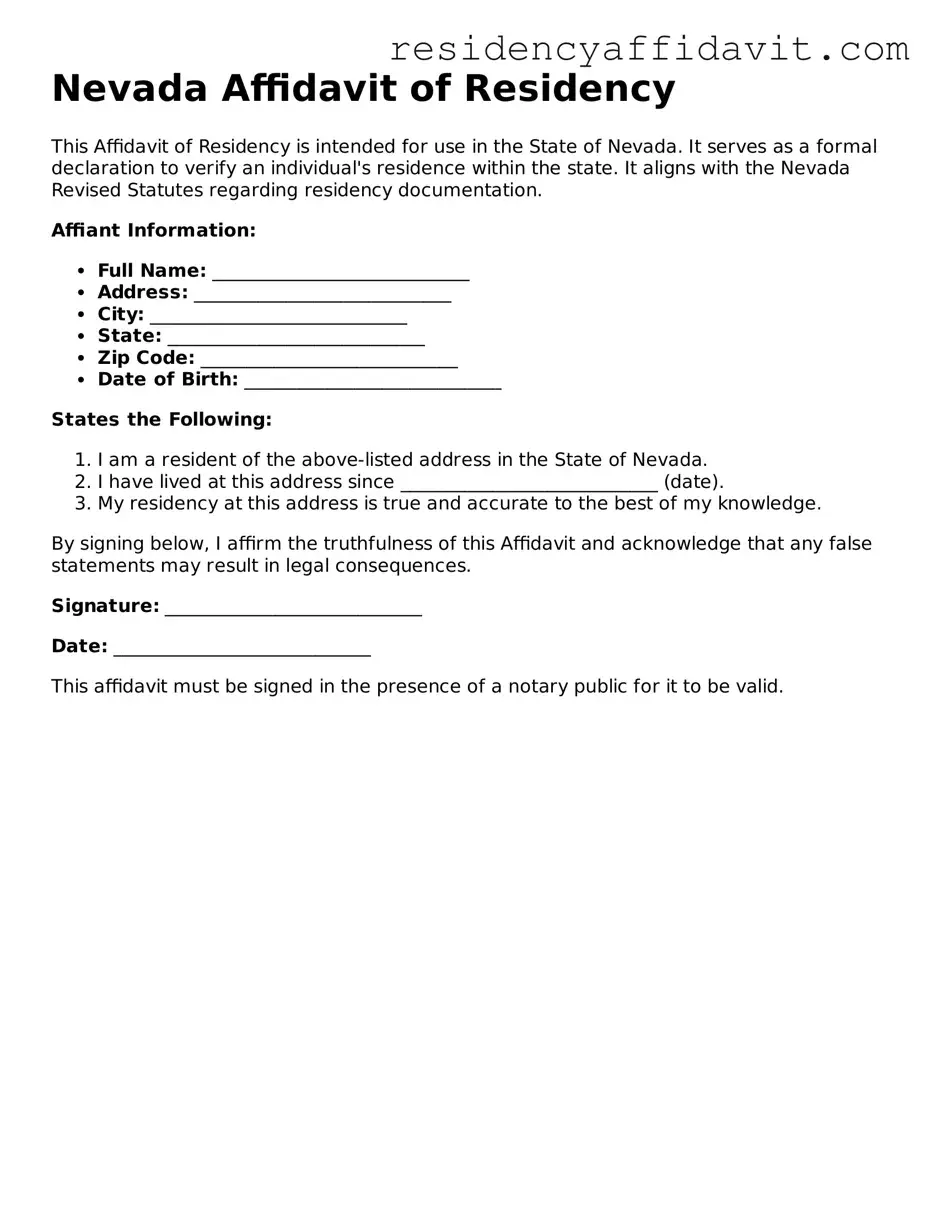Attorney-Approved Affidavit of Residency Document for Nevada
The Nevada Affidavit of Residency form is a legal document used to verify an individual's residence within the state of Nevada. This form serves as a crucial tool for those who need to confirm their residency status for various purposes, such as obtaining a driver's license or registering to vote. Understanding how to properly complete and submit this affidavit can help streamline many administrative processes.
Get My Affidavit of Residency Online

Attorney-Approved Affidavit of Residency Document for Nevada
Get My Affidavit of Residency Online
Your form progress is not saved
Edit and save Affidavit of Residency online, ready to download.
Get My Affidavit of Residency Online
or
➤ Affidavit of Residency PDF Form
